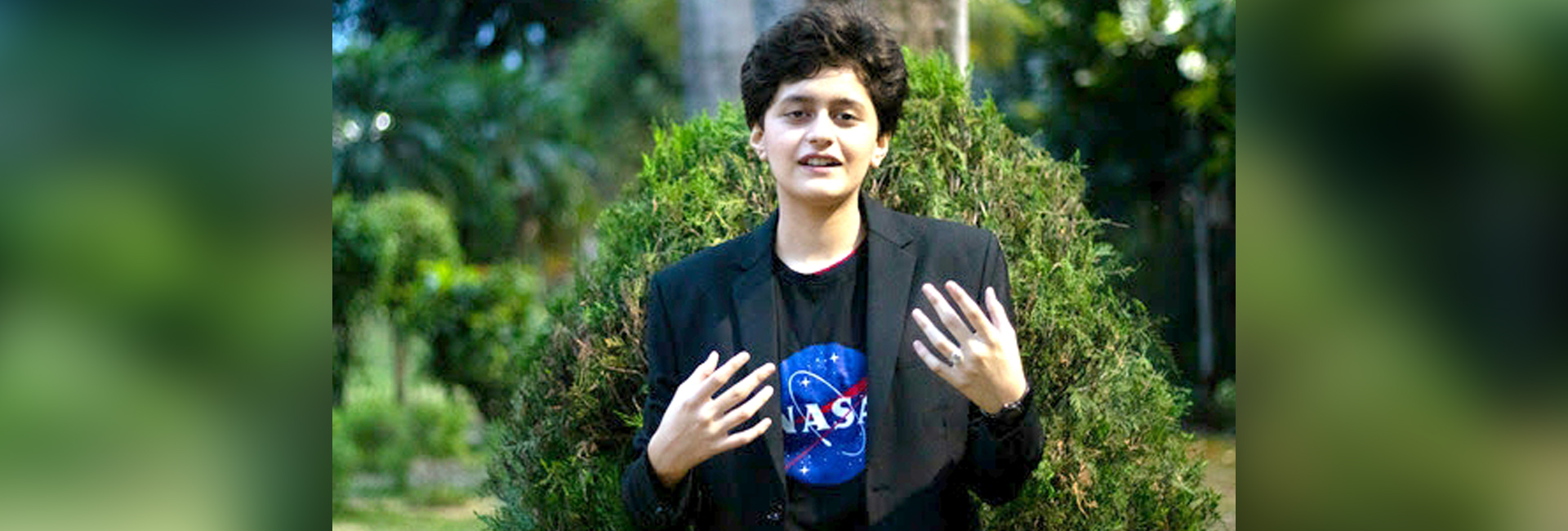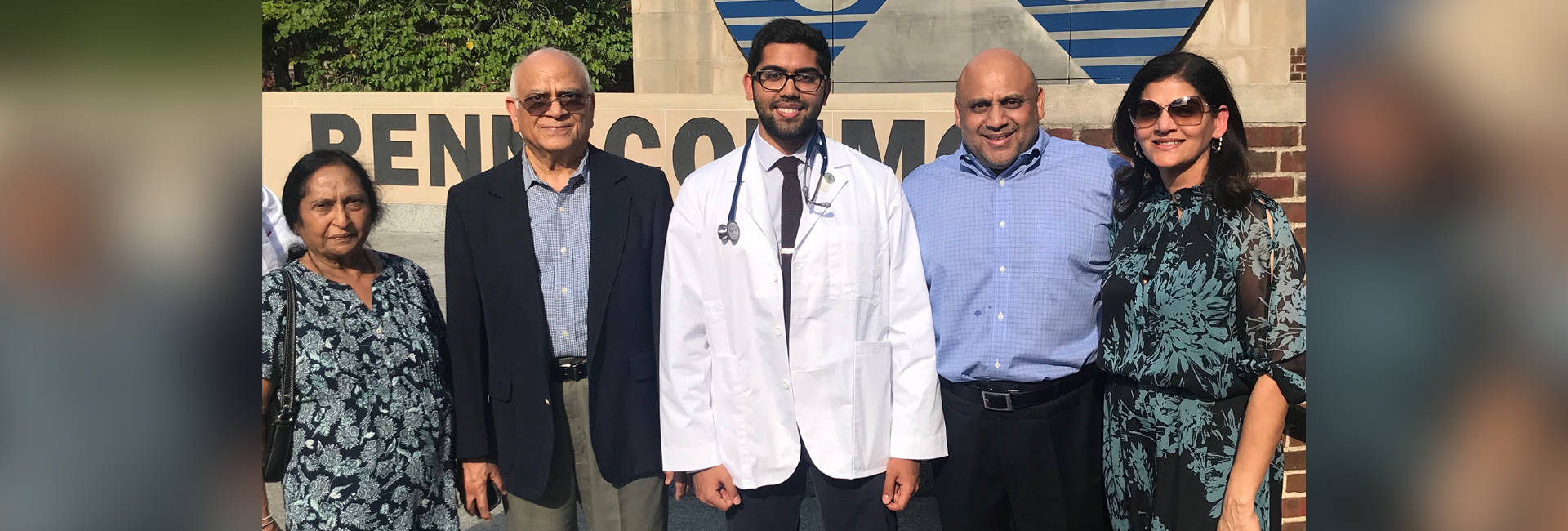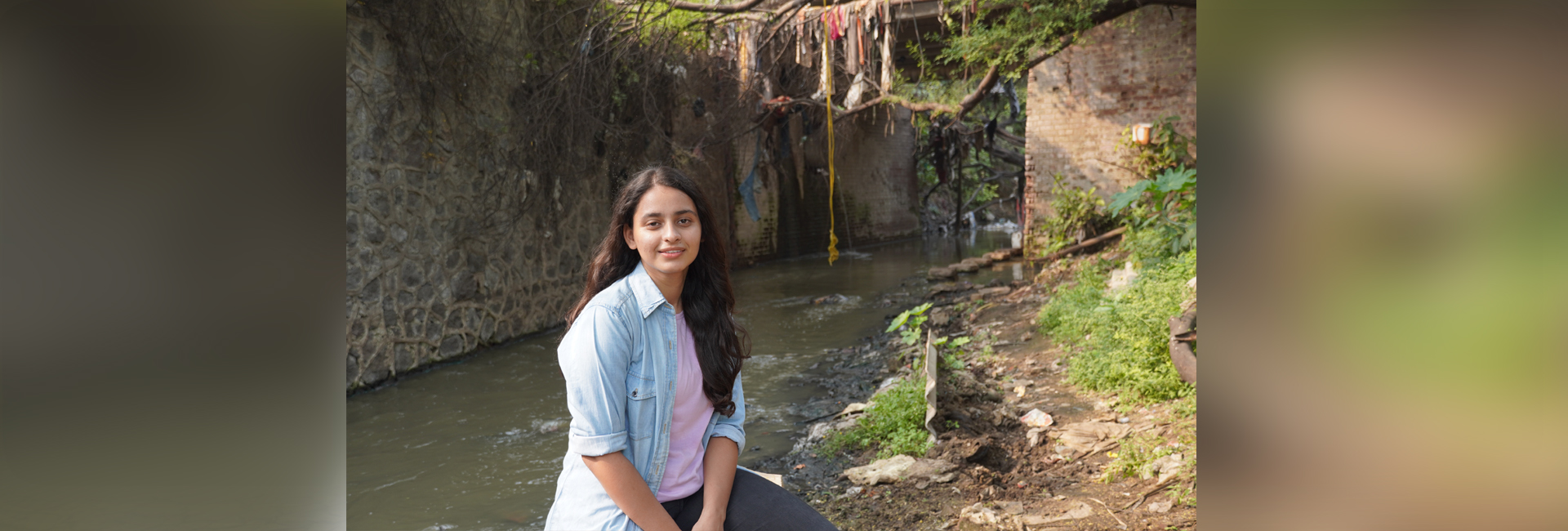(May 25, 2022) Sustainability in space exploration is one of modern man’s biggest dilemmas, drawing bright young minds all in pursuit of a solution. Among them is eleventh-grader Anushka Sharad. A NASA citizen scientist who has helped search for asteroids, the teen changemaker shows a gravity far beyond her years. She aims to bring scientific knowledge to peers with less access and open their eyes to the vast possibilities the study of science affords. She is the founder of seekinspace.com, a NASA Citizen Scientist, science communicator and an amateur poet. “Theoretical astrophysics and computational astronomy are my areas of study,” says Anushka, a serious teenager with an approach that is far beyond her years.
Thousands of rockets and satellites launched over the last fifty years leading to a sizeable accumulation of junk outside the earth’s orbit, sustainable space exploration is one of Anushka’s focus areas. Her interest is timely: The subject of space debris has entered mainstream discourse and in 2021, China found itself under criticism from NASA for “failing to meet responsible standards regarding their space debris.” The reproach came after remnants from China’s Long March 5B rocket fell into the Indian Ocean only to be met with stubborn silence from those responsible. Another focus area is asteroid mining – rich in elements and minerals, asteroids are untapped resources. “Can we harness methods like 3D printing and look at options like asteroid mining to curb our pollution of the earth,” Anushka asks, in an interview with Global Indian.
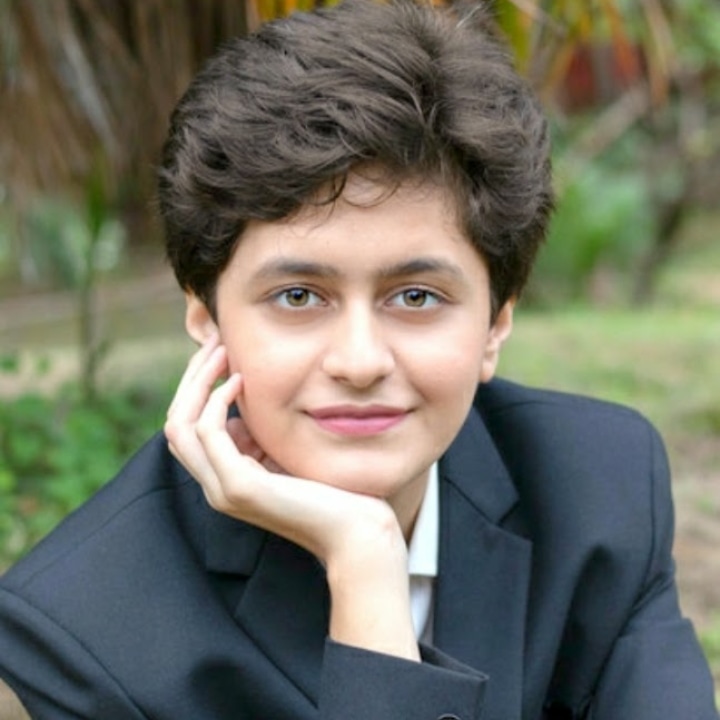
STEM awareness and a personal space odyssey
Recently, Anushka began her role as a Global Ambassador with the Women Tech Network. The community, based in California, promotes gender diversity in technology and connects professionals with top companies and startups. It is a culmination, of sorts, of her attempts to spread awareness on the diverse potential of STEM subjects. For, not one to restrict herself to a single area of study, Anushka delivers lectures on AI and machine learning to other students, hoping to help them understand how they work. She also visits schools to spread awareness on the STEM fields.
“Most students don’t know how many career options there are in science. It’s not just about physics and math or engineering as a career. There are many choices – technology, chemistry and biology to name a few. But students don’t explore these options,” explains the teen changemaker. “I have done the exploration and understand how much can be done. I must tell the others too,” she tells Global Indian.
In August 2021, Anushka began seekinspace.com, where she publishes her articles and blogs. She is also a researcher with The Nebula Space Organisation, a research platform for students by students. Also associated with The Aurora Academic Journal, another student run venture that works with young researchers from across the globe, Anushka has written over 70 articles on astronomy. “I showed up on YouTube as well,” Anushka says. “It’s mostly for the AI sessions I conduct along with informative videos and opportunities in STEM fields.”
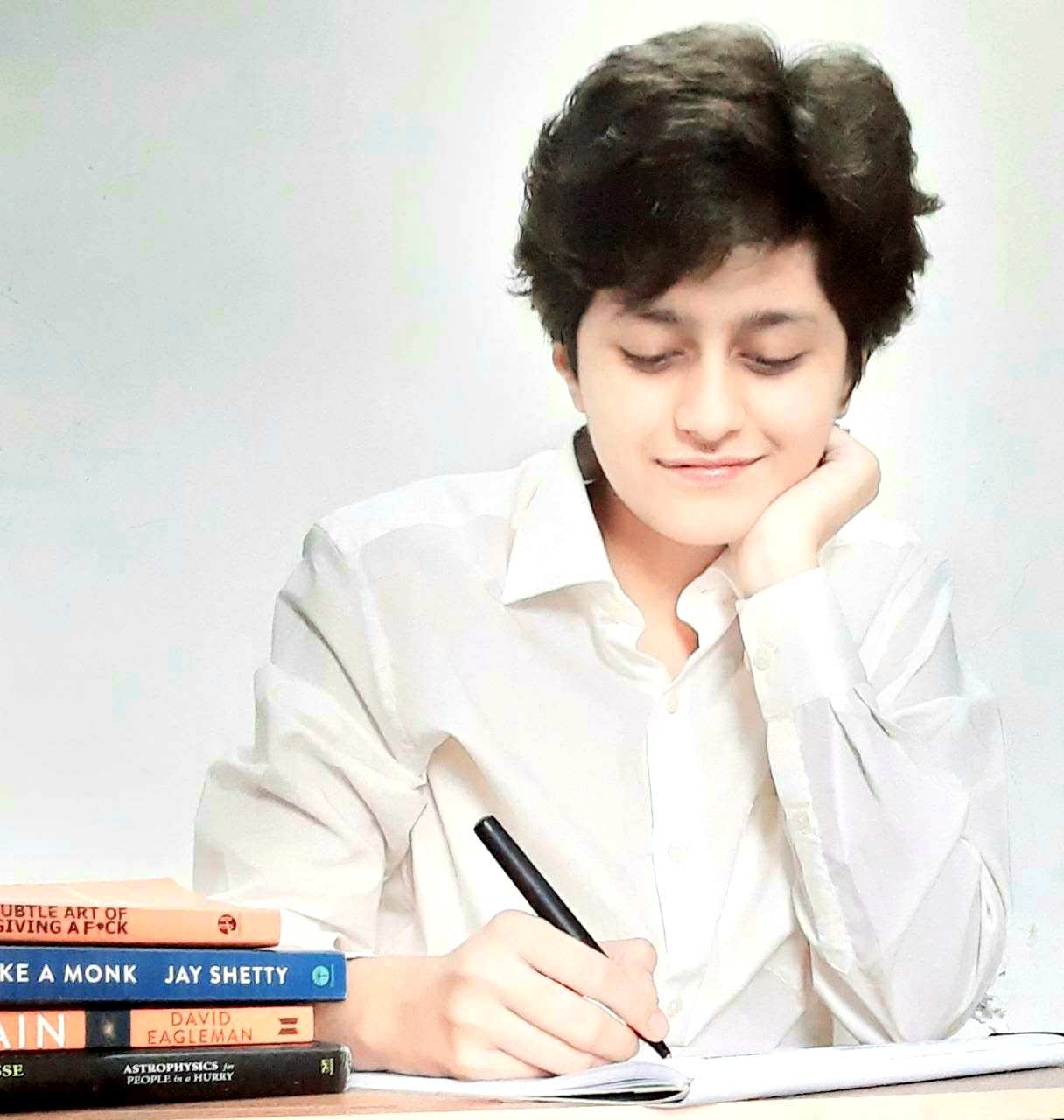

Back to the beginning
“I knew I was made for science and it was made for me,” Anushka remarks quietly. When she was in middle school, she got her hands on an encyclopaedia of science that covered an extensive breadth of topics. As she pored through them, her young mind was captivated by the idea that “We humans are made of stardust. We are the same as the cosmos. I am a cosmic entity,” she smiles.
Inspired by idea, she studied more and more – always on her own, she says, “I have had no real mentor to guide me or even to point me in the right direction”. The pandemic hit and the country went into lockdown, leaving Anushka with enough time on her hands to continue her studies. She started reading every article she could find, watching videos and documentaries and making lists of books to read. She ordered the books online, building her “treasury of books,” as she puts it. Writing articles to help herself analyse the information, Anushka discovered a flair for writing that she uses in her research papers, to write poetry and also, in her first book.
“I was intrigued with Stephen Hawking’s The Grand Design,” Anushka says. “He makes an argument against God, saying that there is no God and everything is natural,” says Anushka. “I am a spiritual human being so I thought that if I want to understand God, I must read something against him. To me, it’s about the power of nature.”
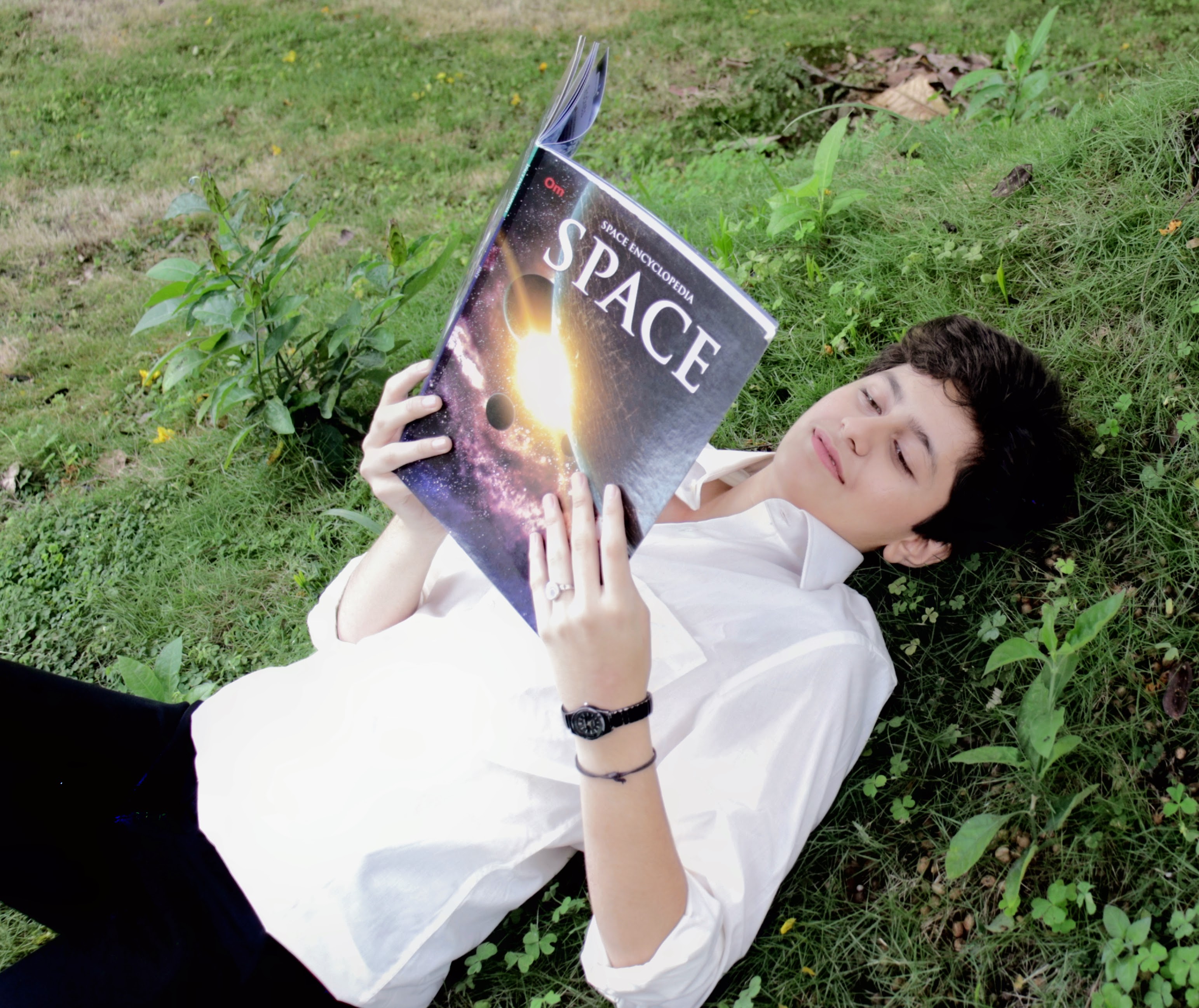
The solitary observer
Always an observer, Anushka likes to spend her time in nature, paying attention the plants and animals she finds there. “I also like mountaineering,” she says, describing many childhood vacations in the hills. “I climb the mountains and think, what is nature trying to teach me? What is it telling me? When I return, I recall those experience and try to understand what they were trying to tell me,” she says. Hers is a life of observation marked by solitude, even at her young age. “Solitude is where I find my solace,” Anushka admits.
Perhaps it was the solitary nature of her work but Anushka knew it was important for her to gain confidence and speak in public. “I began reaching out to students on Instagram and LinkedIn,” says the teen, who is active on social media platforms. “I love connecting with students, especially when they are curious,” says the teen changemaker.
Anushka visits CBSE and ICSE schools, organising sessions for students in Pune, where she lives. In October, she hopes to conduct her first session for adults as well, in collaboration with another organisation. “It will be a night camp like the one I had for students,” she says. The night camp was her own first experience with a telescope, set up at the campsite beside a lake.
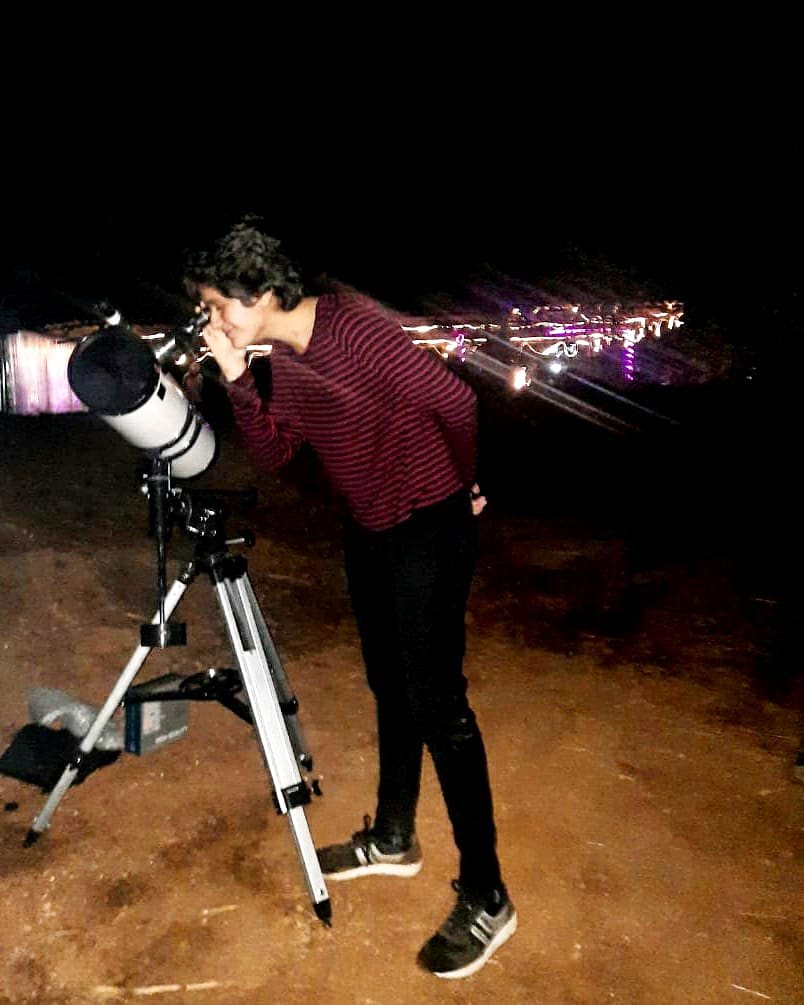

Science communicator
When her blogs and articles became popular among her family and friends, Anushka thought she might like to dabble in it. “I brought my skills in science and language together to be a science writer,” says the teen changemaker. “As I understood more about astronomy, astrophysics, neuralinks, AI and machine learning, I wanted to find a way to unite technology and space exploration. Humans can’t really travel through space but robots can. And I want to use my skills to be part of something like this, to create something that is bigger than me.”
The road ahead
Currently in the midst of preparing for her SATs and IELTs, Anushka hopes to study abroad. “There are so many opportunities available. We get to research at a very early age, which is a big advantage,” says Anushka. “India doesn’t lack expertise but a bachelor’s degree in astrophysics is hard to find,” she says. “I also thought, if people like Kalam and Gandhi can benefit from studying abroad, why can’t I? I want to study elsewhere and come back here to make an impact.” The teen changemaker intends to remain in research, pushing the frontiers of what is known and what can be done, like “building sustainable rockets that are in keeping with the UN’s Sustainable Development Goals,” she suggests. “No matter what I do, my sole purpose is simply to serve humanity.”

